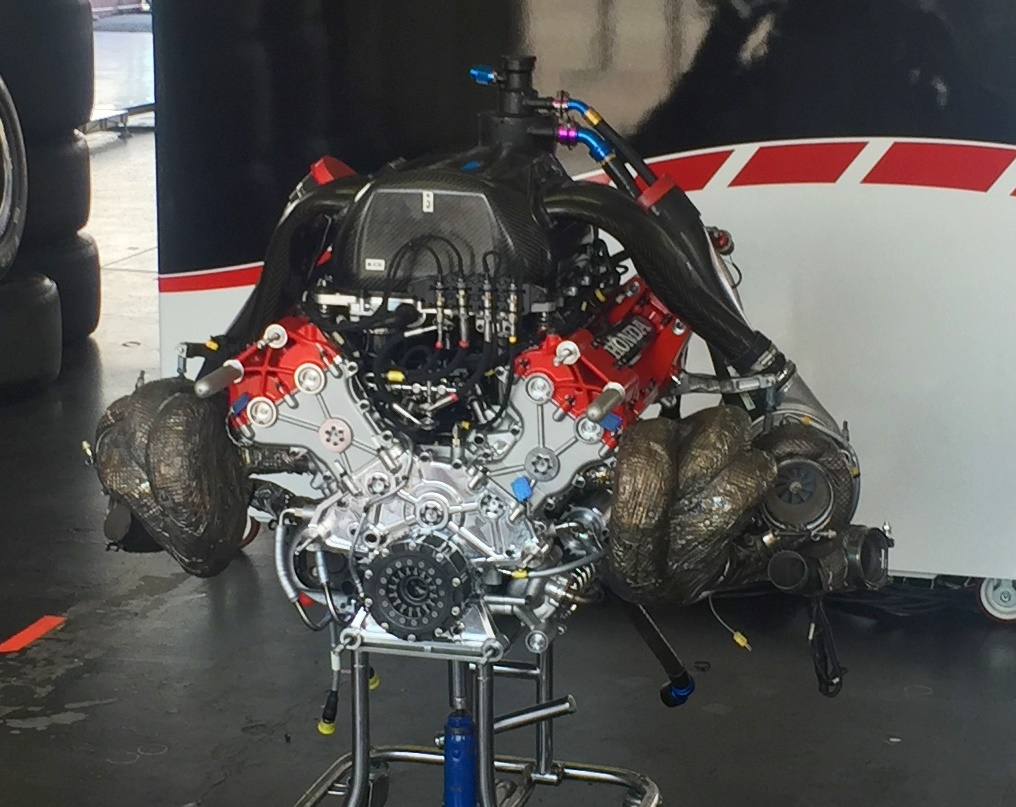IndyCar to remain 100% ICE
 |
| Honda IndyCar engine. AR1.com agrees, electric motors are for the street, not the race track. The more the engines scream, the more fans will be watching |
Honda Performance Development told Autosport it does not want Formula 1-style hybrid elements to become part of IndyCar's engines in the future.
IndyCar has run 2.2-liter twin-turbo V6 engines since the double turbo layout became mandatory in 2013.
Current engine suppliers Honda and Chevrolet signed multi-year contract extensions this year with a view to defining IndyCar's future long-term, and there have been discussions over engine specifications.
When asked by Autosport if that future could include hybridization, HPD's race team principal Alan Miller says: "That's not what we're in favor of.
"The architecture of the engine as it is now, a V6 twin turbo with small displacement, we like that, and want to keep a similar layout.
"We don't have a desire or even a marketing reason to want to put a hybrid unit on it. It comes up in discussions but I don't believe it will go that way."
IndyCar has embarked on cost saving moves in recent years, with the move to a universal aerokit for 2018 a key factor in that aim.
Miller said keeping the engines in a similar configuration is important for the series' goal.
"At the end of the day, I think the purpose of the series has to be to create great racing with super-fast cars but in a way whereby costs are kept under control," he said.
